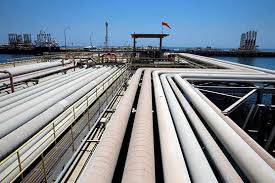DUBAI/KUWAIT - Kuwait and Saudi Arabia agreed on Tuesday to end a five-year dispute over their shared Neutral Zone in a deal which will allow production to resume at two oilfields that can pump up to 0.5% of the world’s oil supply. The Gulf neighbours halted production at the Khafji and Wafra fields, which together produce some 500,000 barrels of oil a day (bpd), in 2014 and 2015, respectively.
U.S. oil company Chevron (CVX.N), which jointly operates the Wafra field with the Kuwait Gulf Oil Company (KGOC) on behalf of Saudi Arabia, said it expected it to return to full production within 12 months. Kuwaiti Foreign Minister Sheikh Ahmad Nasser al-Mohammad al-Sabah and Saudi Minister of Energy Prince Abdulaziz bin Salman signed the agreements in Kuwait, state news agency KUNA said.
“The most important point is the final demarcation of the entire border ... in addition to defining sovereignty on both sides of the divided zone which translates into a real achievement,” said Saudi economist Fadl Alboainain. Prince Abdulaziz told Reuters in December that resuming production from the oilfields would not affect commitments by the Organization of the Petroleum Exporting Countries and other major oil producers (OPEC+) to curb crude output.
At a ceremony at Wafra on Tuesday, Kuwaiti Oil Minister Khaled al-Fadhel echoed that view.
“The resumption of production at the Khafji and Wafra oilfields is not linked to the international commitments of Saudi Arabia and Kuwait,” he said. Saudi Arabia and Kuwait have been reducing oil supply as part of the broader OPEC+ pact, which expires in March. A source familiar with discussions between Kuwait and Saudi Arabia told Reuters the talks turned serious in October and the breakthrough came at a meeting of Gulf Cooperation Council countries in Riyadh this month.
“During the latest GCC meeting in Riyadh there were very clear signs that Kuwait and Saudi Arabia had reached a solution ... And the Emir of Kuwait himself was pushing to resolve this issue bluntly and firmly,” the source said. The agreement was reached after a lengthy process involving large teams of political, technical and legal representatives.
“The two countries are not in a rush to resume production from the neutral zone oilfields due to the production cuts agreement so it will take easily up to six months,” Kuwaiti oil market analyst Kamel al-Haramy said.
OPEC+ countries committed in their latest meeting in December to some of the sector’s deepest output cuts in a decade aiming to avert oversupply and support prices.
A former senior official in Kuwait’s Gulf Oil Company, which operates the Khafji field alongside AGOC, a subsidiary of Saudi state oil firm Saudi Aramco (2222.SE), said he expected production to resume there first. “The Khafji oilfield will most likely be the first to resume production as its equipment is far better maintained than Wafra,” he said. Oil output in the Neutral Zone, which dates back to 1920s treaties establishing regional borders, is divided equally between Saudi Arabia and Kuwait.






